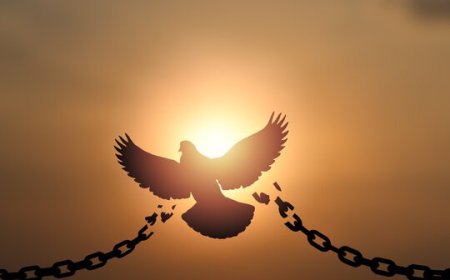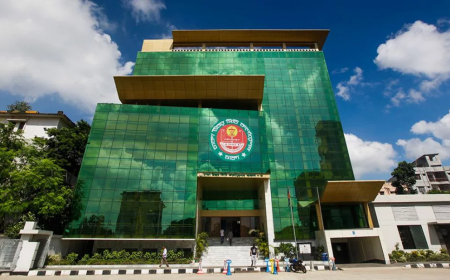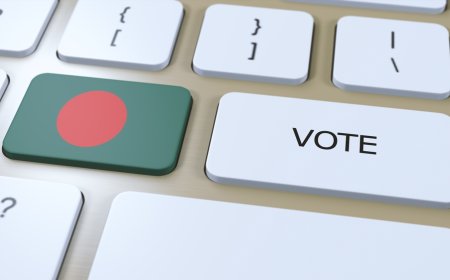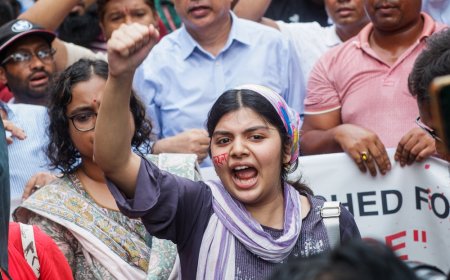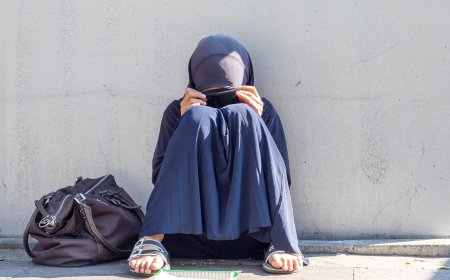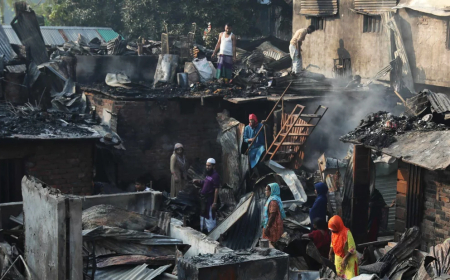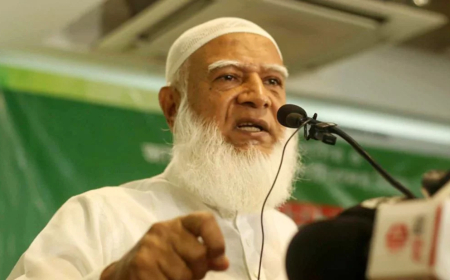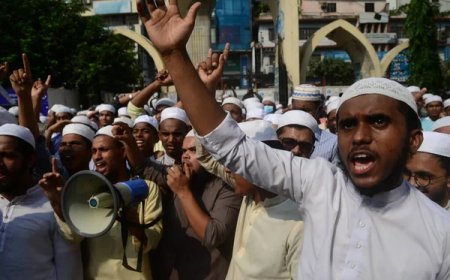Nur and the Grammar of State Violence
The roots of this violence lie in the lame-duck interim government’s refusal to do the hard thing first: clean the stables. More than a year into its tenure, we have endured announcements in place of reform and committees in place of consequences.
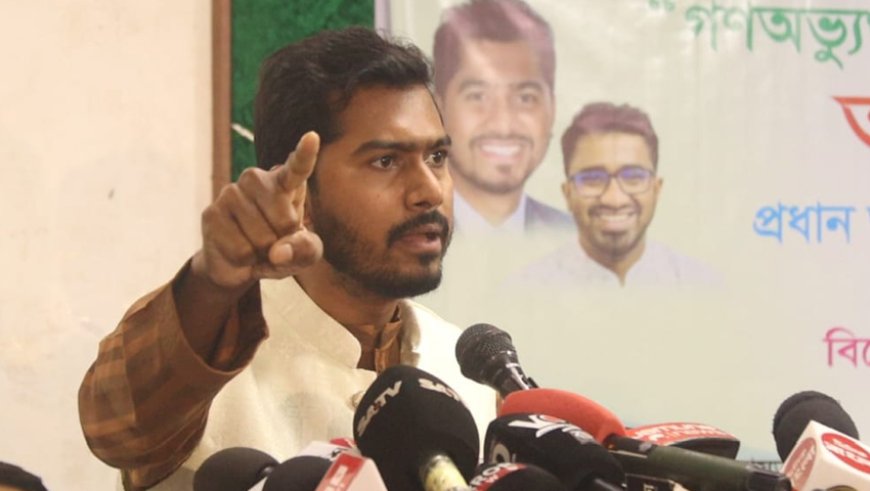
Big disasters don’t arrive fully formed; they are bred -- cultured like an infection—by negligence, cowardice, and, sometimes, by malice dressed up as policy.
The brutal assault on Nurul Haque Nur, chairman of Gono Odhikar Parishad, did not fall from a clear sky. It was the harvest of omissions and commissions stacked over months.
Let us call it what it was: an attack. There is no legal, moral, or sensible euphemism for batons raining down on unarmed political workers who had already retreated to brief the press.
The roots of this violence lie in the lame-duck interim government’s refusal to do the hard thing first: clean the stables. More than a year into its tenure, we have endured announcements in place of reform, committees in place of consequences. The police -- long shielded from accountability -- remains largely unreconstructed. The old reflexes endure: denial when abuse is filmed, delay when accountability is due, and a bureaucratic habit of treating dissent as a disturbance rather than a constitutional right. Because the civil pillar is left hollow, the government leans on the military to perform policing tasks -- an admission of failure disguised as necessity. Soldiers are not street constables, and whenever that line blurs, fear replaces consent.
Selective justice compounds these omissions. The interim authorities did move against prominent figures in the Awami League’s orbit and trumpeted tribunals as a new dawn. But justice becomes performance when it is partial. The Jatiya Party -- the indispensable prop of the “managed” elections of 2014, 2018, and again in 2024 -- has glided through this season of reckoning with astonishing ease.
Whether or not the party as an institution is criminally liable can be debated; that senior leaders were equal partners in vote-rigging machinery and in the monetization of public life is far harder to deny. A government that claims moral purpose cannot avert its gaze from such collaborators and still expect to be believed. To ignore them is not prudence; it is permission.
That permission -- call it impunity -- prepared the ground for the tragedy of August 29. Nurul Haque Nur is a controversial figure; saints seldom rise from the dust of our politics. He has had accusations hurled at him, some serious. But when it mattered -- against a regime of fear -- he stood with the beaten and the disappeared, and paid for it in blood and bone. That should count. It should count especially for those who wield the state’s monopoly on force.
Nur then announced a march to the Jatiya Party headquarters. It was, at best, unwise. JaPa is a legally registered party; in a season of tinder-dry tempers, they could plausibly fear an attack and prepare to resist. In such a moment, the state’s job is not to flex; it is to cool the temperature, to build and enforce a cordon, to negotiate routes and rules, to ensure that a political dare does not become a street war. Instead, as the march met the gates, tempers spiked. Stones flew; shoves became strikes. Police -- thin on the ground -- intervened, and some were injured. Up to this point, the night still had an exit ramp: arrests under law if offences were committed, a visible, measured use of force, and a paper trail that could survive sunlight.
But the line between law and vengeance was then trampled. After the clash subsided, GOP leaders regrouped to brief the press. What followed looked less like policing than punishment. A large contingent surged in and began to hammer the crowd behind the dais.
The state does not earn legitimacy by winning brawls; it earns it by wearing restraint like armour. Even if arrests had been warranted, they could have been conducted under known procedures, with force calibrated to immediate threat. What we witnessed instead was retribution -- a choreography more familiar from party youth wings than from a republic’s guardians.
The images -- bodies crumpling, heads split, panicked cries beneath a rain of truncheons -- are not easily forgotten. The beating of Nur was so severe that by the next day he remained in intensive care. A democracy waving the flag of transition cannot also wave the baton of impunity. Excessive force is not a “mistake” -- it is a message. It tells citizens to expect savagery where they should expect law, and it tells officials that brutality will be indulged so long as it is performed garbed in the costume of “order.”
What followed was drearily predictable. Condemnations flowed from the podiums of power; statements were issued about independent inquiries. We know this script. Condemnation is the cheapest currency in Dhaka: tendered after every outrage, convertible into nothing.
No officer was suspended pending investigation. No charge sheets appeared. No timetable for truth was set. The government’s highest offices spoke as if they were concerned outsiders rather than the very authorities empowered to act.
To say “we condemn” while doing nothing is to confess the hollowness of one’s own authority.
Meanwhile, the fire spread outward. Protests erupted, party offices were vandalized, highways blockaded. When the centre cannot be trusted to police the violent or prosecute the guilty, the street attempts to do both. But the street is a blunt instrument; it flattens nuance and scatters fear. A republic that abdicates its monopoly on legitimate force invites a black market of violence, where everyone bargains with fists.
Pull back the lens and the pattern clarifies. For a year, the interim government has tried to walk two roads at once: promising rupture with autocracy while borrowing its methods; speaking the language of reform while settling for rearrangement; pledging to demilitarize civic life while routing public order through uniforms and commands.
You cannot announce the birth of a new order while nursing the reflexes of the old. You cannot promise a clean future while protecting the useful ghosts of the past. And you cannot keep telling people that the law is their shield if the baton keeps finding their skulls.
This moment is not about one man, however emblematic he has become under hospital lights. It is not even about one party that has long prospered by renting itself out to power. It is about the architecture of impunity -- built over a decade, barely dented in a year -- that enables the next “accident,” the next “clash,” the next “regrettable excess.”
Dismantling that architecture requires three things, none of them glamorous, but each indispensable.
First, police reform in law, not in press releases: recruitment, training, supervision, body-cams, independent oversight with teeth, and a prosecutorial pipeline insulated from politics.
Second, a bright, respected line between soldiers and street policing -- a re-commitment to the principle that military credibility is not domestic crowd control on hire.
Third, accountability that runs across the full spectrum of enablers, including inside the Jatiya Party, so that justice stops looking like theatre staged for the victor’s audience.
We have seen enough rehearsals. The question is brutally simple, and it belongs to the future we claim to be building: will this government move from eloquent condemnations to enforceable consequences, from selective prosecutions to even-handed accountability, from uniforms in the square to institutions under law -- or will it remain the custodian of the same old cruelty, dressed in a new costume?
If it chooses the latter, then we will see that August 29 was not an aberration. It was a dress rehearsal, and the republic is once again the stage.
Bobby Hajjaj is the chairman of the Nationalist Democratic Movement (NDM) and a faculty member at North South University. He can be reached at [email protected].
What's Your Reaction?










